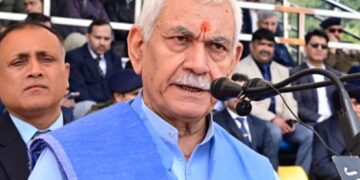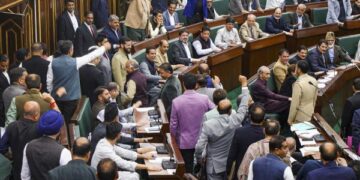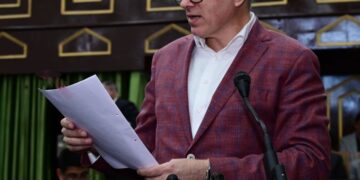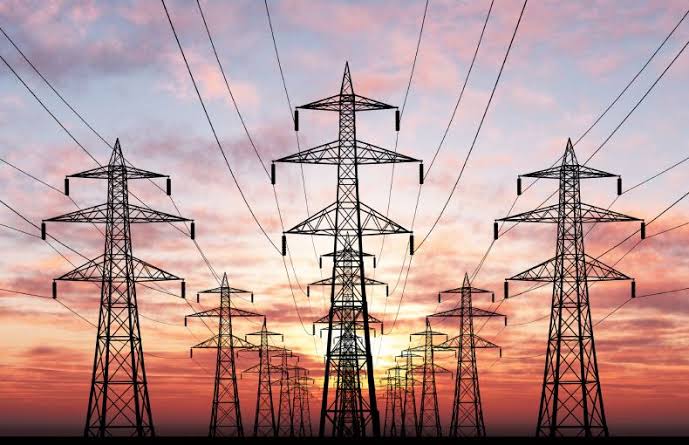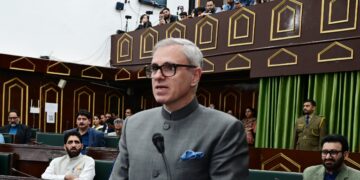Srinagar: Day after authorities disallowed the Shab-e-Qadr and Jumat-ul-Vida prayer congregations at the Srinagar’s historic Jama Masjid, National Conference vice-president Omar Abdullah Thursday said that the present situation in Kashmir was “far from normal”.
“It’s unfortunate. They say that the situation is almost normal. If it is normal, then why no permission to Shab and Jumait-ul-Vida (prayers) in Jama Masjid?” he told reporters here.
He said the government was either creating “an artificial normalcy” or selling an “impression of normalcy” in the rest of the country by “suppressing the people here”.
“Normalcy does not come by way of tourism only. The proof of normalcy is by having people live normal lives. Not having the prayers is evidence of an abnormal situation, and not normalcy. The government, if not by its words, then by its actions, is proving that the situation in Kashmir is far from normal,” Abdullah said at a press conference at NC’s Nawa-e-Subh headquarters.
Abdullah, who was flanked by party general secretary Ali Muhammad Sagar, provincial president Nasir Aslam Wani and Tanvir Sadiq, said that “linking tourist arrivals with normalcy won’t do”.
Over the prevailing power crisis, Abdullah said the pesky power cuts during ‘Sehri’ and ‘Iftar’ time “is either a deliberate attempt by the government, or just its incompetence; and it the government that can explain what it was”.
He said power breakdown is also at its peak in Jammu region.
“Generation from our own power projects is at its peak during April but yet we have no power at Sehri and Iftar time. We don’t know wherefrom the power has to be arranged by the government, but these power cuts should stop forthwith in view of the holy month of Ramzan,” he said, adding that “All the previous regimes would always ensure that there were no power cuts during Sehri and Iftar times, but the present regime has failed to do so.”
He said the people of Kashmir “haven’t witnessed such irritating power cuts as are being seen at present, that too in the holy month of Ramzan.”
He also said that India is too diverse a country to have one national language and the idea of India is that it gives space to everybody.
“India is too diverse a country to have one national language. The idea of India is that it gives space to everybody. When you pick up an Indian currency note, how many languages do you find on it?
“The currency note gives space to all the languages and if the Indian currency note gives space to all the languages, then obviously it is understood that we are more than just one language, more than just one culture, more than just one religion,” he said, replying to a query on a recent controversy over the issue.
“We must give space to everybody. If we do not impose a language in Jammu and Kashmir, why should anybody do it? Let people choose. Why should there be a national language? I do not think a place like India needs a national language, we do not need a national religion. We need to give space to everybody,” Abdullah said.
Asked if communalism had become mainstream and elections are now only fought over Hindu-Muslim issues, he said it was not something new “but now, there has been an increase”.
“It has been mainstreamed like perhaps never before. That is true and it is unfortunate,” he added.
To a question on whether he thinks Jammu and Kashmir’s accession to India was a mistake given the situation across the country now, the NC leader answered in the negative, saying no one could have predicted how things would pan out.
Talking about the Assembly polls in Jammu and Kashmir and his remarks on Wednesday that the People’s Alliance for Gupkar Declaration (PAGD) should contest the election as an alliance, the NC leader said it is important that “we put a stop to the detrimental changes that have been instituted in Jammu and Kashmir after August 05, 2019”.
“And the best chance for success in that is for the PAGD to fight the polls together. But the ultimate decision obviously rests with the PAGD. They have to decide, I cannot decide for them,” Abdullah said.
He, however, added that he believes there is a good chance that the PAGD will contest the election as an alliance.
Asked if he thinks the Bharatiya Janata Party (BJP) will pose a challenge to his party in the Jammu and Kashmir Assembly polls, the former chief minister said every election is a challenge, but the idea is “to stop the onslaught that began on Jammu and Kashmir on August 05, 2019”. (With PTI inputs)


